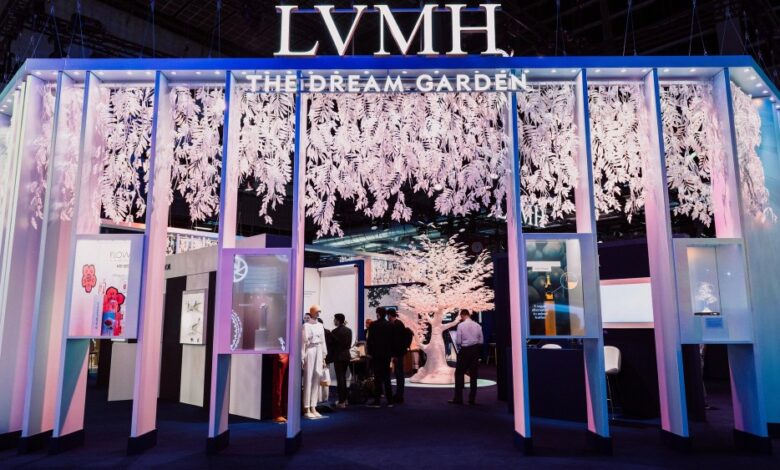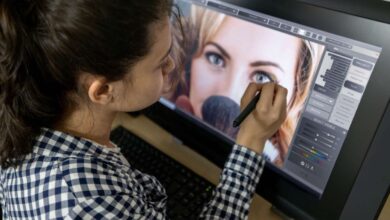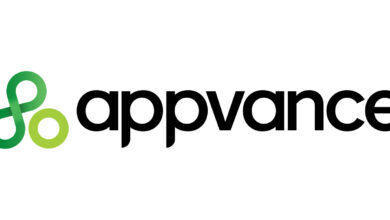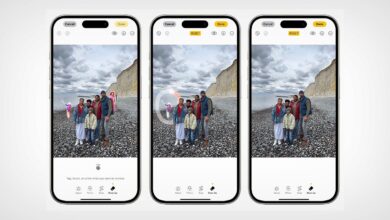FancyTech Wins 2024 LVMH Innovation Award at VivaTech

PARIS – A day after French president Emmanuel Macron announced 400 million euros of public investments in research and training on artificial intelligence, all eyes were on VivaTech.
Generative AI was the winning technology on the main stage, where LVMH Moët Hennessy Louis Vuitton chair and chief executive officer Bernard Arnault presented the LVMH Innovation Award Grand Prize.
It went this year to China-based FancyTech, which specializes in 3D modeling and generative AI content production, particularly for video.
“This prize once again honors a startup that puts technological developments at the service of excellence. I am confident that their expertise will match the ambition of our maisons and anticipate the expectations of our customers,” declared Arnault.
The industry titan called the win “a unique opportunity to collaborate with our maisons and contribute to the transformation of the luxury sector.”
“We’re at the dawn of an era of transformation, where the emergence of GenAI requires that the use of artificial intelligence also call on human imagination. This fusion of mind and technology enables videos to be generated through generative artificial intelligence from 3D product modelling and a creative brief,” declared Morgan Mao, FancyTech cofounder.
The winner of the LVMH Innovation Award was selected from a record 1,545 applications from 89 countries, up from 1,320 the previous year, said Franck Le Moal, group IT and technology director of LVMH.
FancyTech also scooped up the Immersive Digital Experiences award.
The 18 finalists were split into six groups – image & media for brand desirability; omnichannel & retail; sustainability & greentech; operations excellence; immersive digital experiences, and employee experience, diversity & inclusion – with a winner named for each category.
Other projects honored were Ircam Amplify, which specializes in sound design and immersive installations; Aectual, a firm producing 3D printed store and architectural finishes using recycled materials that can be reused in a circular loop; Glanceable, which uses AI to centralize and analyze customer feedback in real time to provide insights; Authena, using the Internet of Things and AI to bolster supply chain integrity by detecting counterfeits and product diversions; and Heralbony, an art license agency specialized in unique narratives by artists with disabilities.
BLNG, a sketch-to-design GenAI and virtual studio for jewelry, also received a special mention.
This year’s winners walked away with trophies designed by Dior’s visual merchandising team under the supervision of Luca Albero, creative visual merchandising director at Christian Dior Couture.
With the help of an in-house GenAI tool, the design team used the VivaTech logo and LVMH’s booth concept The Dream Garden as the starting points, said Albero.
Made of handblown Murano glass, the grand prize was presented in a custom Louis Vuitton trunk.
The LVMH Innovation Award Grand Prize trophy.
Courtesy
Commenting on the evolution of the prize since its launch in 2017, Le Moal said fewer early-stage start-ups are applying.
“They have understood that the aim of the LVMH Innovation Award is not to give visibility to a handful of start-ups. We’re not going to give them funding. We’re going to incubate them with La Maison des Startups, but beyond incubating them, we want these start-ups to work with our houses,” he said.
“If we select a start-up, our aim is for it to collaborate with at least seven to 10 of our brands so that it can grow and develop,” he added.
Among recent success stories are the 2021 winner Bambuser, a start-up specializing in livestream shopping whose clients include Tiffany & Co. and Toshi, the last-mile luxury partner that took home the prize in 2022, Le Moal said.
LVMH’s stand showcased tech innovations from several of its brands, ranging from Sephora’s Look Analysis makeup recommendation tool, available in China, to Guerlain’s Olfactive Landscapes created with GenAI, and Hennessy’s Ampelos, a virtual reality simulator that trains new recruits in how to cut Cognac vines.
A premium partner of the Olympic Games and Paralympic Games, the luxury group showcased the medals produced by Chaumet, the Vuitton trunks they will be stored in, and the Berluti uniforms that Team France will don for the opening ceremonies, while a cabin provided an immersive experience of what’s in store at Paris 2024.
The generative capabilities of AI and its place within the creative value chain were the hottest topics at the technology showcase.
Gonzague de Pirey, chief omnichannel and data officer of LVMH, said the trophy reflects LVMH’s ambition to be a pioneer in the responsible use of AI. “It is clear that the tool is becoming so important, so powerful, that it was very important for us to establish a doctrine for the use of AI and GenAI,” he said.
“They are there to assist our different people in the organization and not to replace them,” emphasized de Pirey.
“Without detracting from the creative genius of our designers, we are absolutely convinced that throughout the creative process, there are tools, namely generative AI, that can help them, whether at the moment of inspiration with mood boards, or when creating the products, for instance by transforming a drawing into a 3D object,” he added.
LVMH has created its own chatbot, MaIA, based on OpenAI’s GPT-4 foundation model and recently launched a Prompt Academy to teach staff, including sales associates, how to use the new tools at their disposal. It trained some 1,500 employees in AI use in 2023 and aims to increase this to 10,000 people in the next few years, said Le Moal.
The group is collaborating with Stanford University’s Institute for Human-Centered Artificial Intelligence on research projects, concentrating on areas such as AI safety and human-centered design.
Elsewhere in the show, L’Oréal was among the companies unveiling its most recent beauty tech innovations, including a realistic human skin-like technology platform for scientific research and product testing and a GenAI beauty content lab called Creaitech meant to augment creativity.
These will add to the likes of a GenAI-powered personal beauty assistant; a portfolio of cutting-edge skin and hair diagnostics and a hair dryer based on infrared light technology, among others.
French creative augmented AI solutions provider Imki showcased a denim capsule that was conceived in 21 days from idea to finished garment, in collaboration with Turkish textile producer Kipaş Textiles and denim manufacturer Taypa.
Another highlight of the tech event was the expansion of LVMH and Alibaba Group’s strategic partnership for five years as part of a goal to deliver cutting-edge retail experiences in China and keep pace with the country’s evolving data laws.
This comes as France seeks to bolster its position in technology, particularly on AI. After the annual “Choose France” foreign investment summit on May 13 in Versailles, the investments of tech giants made headlines.
Amazon announced 1.2 billion euros, with some 3,000 job creations, to reinforce its logistics network and create AI-focused data centers, while Microsoft pledged 4 billion euros to enlarge two existing data centers in the country and create a third.



